The old adage “behind every successful man is a woman” is true for many of the most influential figures in history. Many people read this statement and infer the ‘woman’ in question to be a wife or girlfriend. However, this is not always the case. As a matter of fact, in many instances it is actually the man’s mother who serves as a vital source of support and guidance. Many successful men such as Andrew Carnegie, Ludwig van Beethoven, Henry Ford and Abraham Lincoln attribute much of their success to the positive influence of their mothers at certain key moments in their lives.
A prime example of this adage is Thomas Alva Edison. Whereas many people think of Edison is as a prodigy who revolutionised modern society, the man himself often attributed much of his success to the influence of his mother. After all, Thomas Edison frequently stated throughout his life to his friend, contemporaries and the press that his mother, Nancy Edison, was the making of him. In fact, Thomas Edison personally stated that;
“My mother was the making of me. She was so true and so sure of me, I felt that I had someone to live for – someone I must not disappoint. The memory of my mother will always be a blessing to me”.
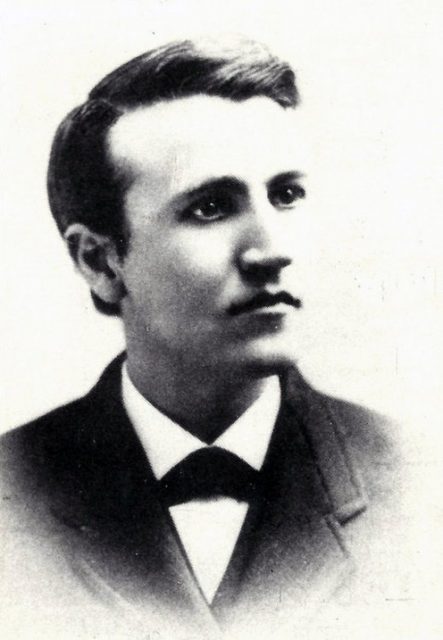
Who was Nancy Edison?
In order to understand the profound influence that Thomas Edison’s mother had on his life, it is first important to learn more about the woman herself. Nancy Edison (nee Nancy Matthews Elliott) was born in 1810 in Chenango County, New York.
Nancy’s father was a Revolutionary War hero and she was raised as a devout Presbyterian. In addition to her religious upbringing, Nancy had a formal education and worked as a schoolteacher. In 1828, Nancy married Samuel Ogden Edison Jr and together they had one son, Thomas Alva Edison, who was born in 1847.
Nancy Edison’s own upbringing would prove instrumental in how she raised her son Thomas. For example, Nancy had a strong sense of right and wrong that was instilled by her Presbyterian roots. Moreover, Nancy had a fierce determination, loyalty and belief in her son’s capabilities.
Consequently, Nancy Edison taught her son to stand up for himself and not to allow other people to unnecessarily criticise him. Furthermore, Nancy Edison’s formal education meant that she was equipped to tutor her son and support his academic endeavours. These academic attributes and fundamental moral principles would prove to become particularly important because much of Edison’s initial childhood behaviour was maligned by his schoolteachers.
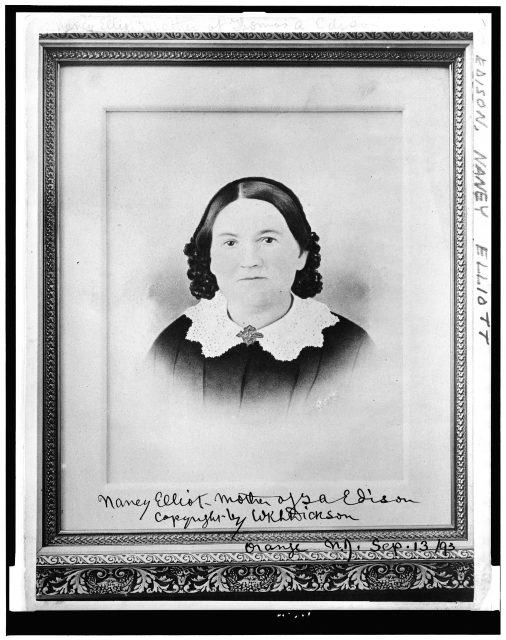
How did Nancy Edison help her son?
A prime example of Nancy Edison’s guidance and support occurred when Thomas Edison was a seven year old boy in school. During this time, Edison’s impulsive nature, energy and appetite for life were often misinterpreted by his schoolteachers. In fact, many of Edison’s schoolteachers believed that he was mentally challenged due to his reluctance to conform to conventional educational practices.
On one of these occasions, Edison’s teacher – Reverend G.B. Engle – told seven year old Edison that he was ‘addled’. The term ‘addled’ is now used to describe someone who is confused due to being intoxicated. However, during Edison’s time, the term ‘addled’ was intended as an insult. To call someone ‘addled’ in the 1850s was intended to imply that they could not think clearly and were mentally deficient.
Upon being branded as ‘addled’, Edison stood up, stormed out of the classroom, left school and walked home. After all, Edison had been taught by his mother to stand up for himself and not to allow other people to needlessly criticise him. This action would be regarded as bold in modern day society, let alone in the 1850s when corporal punishment was still the primary form of discipline in schools.
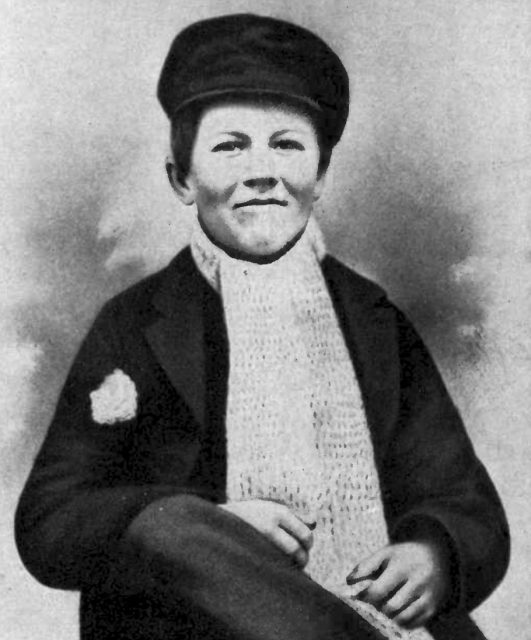
As soon as the young Thomas Edison arrived home, he told his mother what had happened in the classroom at school. What Nancy Edison would do next would alter the course of Edison’s life. In many ways, we partially have Nancy Edison to thank for Edison’s inventions as she changed the trajectory of his life.
Everything came to a head the next day when Nancy Edison brought young Thomas Edison back to school and insisted upon speaking with his teacher. Unfortunately, the teacher was adamant on insisting that Thomas was indeed ‘addled’. However, rather than succumbing to societal pressures, Nancy Edison was furious at the teacher’s statements and she fiercely defended her son. Consequently, Nancy argued with Reverend G.B. Engle and told him that her son had more brains at seven years old than the teacher would ever have in his entire life. Immediately, Nancy pulled her son out of that school and resolved to educate him herself given that his schoolteachers were inept.
From this point onward, Nancy Edison drew upon her formal education and prior work experience as a schoolteacher in order to prepare her son for his life’s endeavours. It is known that Nancy relied upon R.G. Parker’s School of Natural Philosophy and The Cooper Union for the Advancement of Science and Art as the foundations of her home schooling of Thomas Edison.
In addition to raising her son, Nancy Edison was able to dedicate all of her attention to her son’s education in a manner that would best suit his personality and aptitudes. Moreover, Nancy Edison was able to teach young Thomas Edison how to cope with his hearing problems that had afflicted him from a young age.
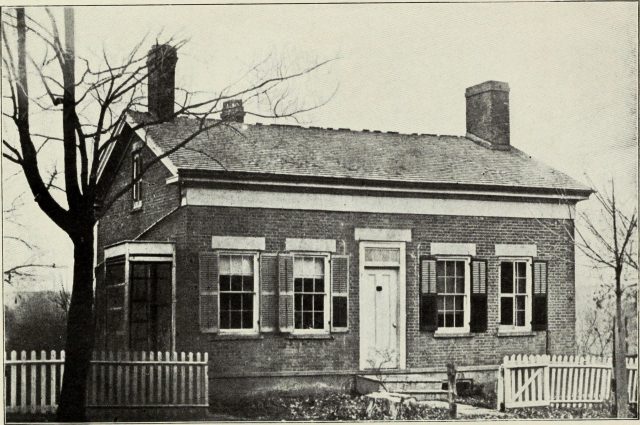
The end result of Nancy Edison’s influence
It is impossible to underestimate the impact that Nancy Edison had upon her son Thomas’s education and life’s works. After all, Nancy Edison was acutely aware of her son’s potential from a very young age. Furthermore, rather than succumbing to conventional practices of the time, Nancy fostered her son’s genius.
Most importantly, Nancy Edison would not let her son listen to any naysayers who could have deterred him from his path to success. Not allowing Thomas to believe that he was ‘addled’ had a profound effect upon his future endeavours. At the end of the day, what we are told during our formative years when we are very impressionable can have a powerful impact on the rest of our lives. As Mahatma Gandhi, once said;
“Your beliefs become your thoughts. Your thoughts become your words. Your words become your actions. Your actions become your habits. Your habits become your values. Your values become your destiny”.
In this manner, Nancy Edison gave her son a great foundation of education for his later experiments and so much more. After all, by home schooling Thomas instead of letting him stay with negative schoolteachers, Nancy Edison was able to preserve and foster her son’s self-esteem when he was still so young, vulnerable and impressionable. The gift of self-love is the start of a brilliant lifelong romance that keeps on giving. If you can give a child self-esteem, self-love and self-respect, you are equipping them with an incredibly important skillset from which they can draw throughout their entire life.
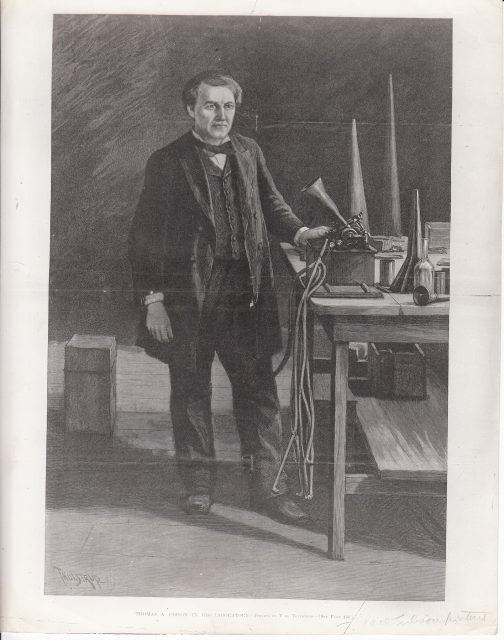
Consequently, rather than conforming to convention and complying with the school, Nancy Edison defended her son and reinforced his self-esteem by supporting his impulsive, energetic and eccentric nature. Nancy provided Thomas with a comprehensive yet unconventional education which enabled him to pursue the subjects which interested him the most. Instead of dismissing her son’s ideas and suggestions like his teacher had, Nancy encouraged Thomas to explore them.
As a result, Thomas Edison was inspired to think outside of the box from a young age and was encouraged to challenge conventional principles in order to create something new and innovative. After all, you cannot innovate just by replicating what has been done before. You need to take risks and leap into the unknown.
This ability to step outside of your comfort zone, to try new things without a safety net or any instruction manual, is one of the most important aspects of high self-esteem. Nancy Edison taught her son the importance of perseverance, believing in yourself and constantly pushing yourself to devise new solutions to any problem. As Edison himself stated during his attempts to perfect the electric light bulb; “I have not failed. I’ve just found 10,000 ways that won’t work”.
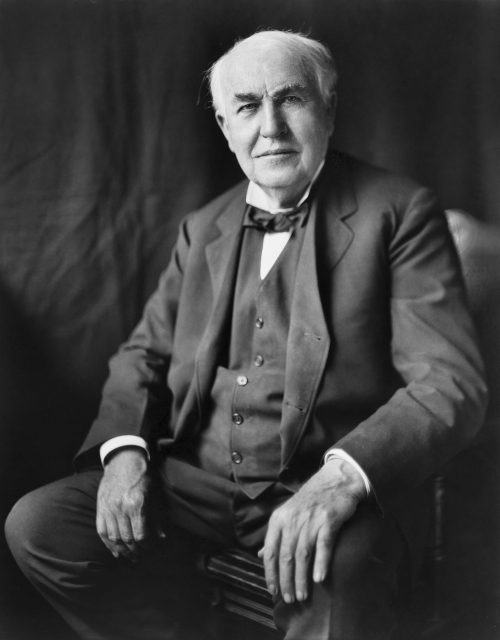
Ultimately, Nancy Edison was able to instil a high sense of self-worth within her son because she possessed it herself. Consequently, when Thomas Edison grew up and founded his own laboratory, Menlo Park, he was able to cultivate an environment which encouraged creativity, enthusiasm for the task at hand, and the freedom to think outside the box rather than simply reverting back to conventional tried and tested techniques. In fact, Edison stated to the scientists in his laboratory; “There are no rules here, we’re trying to accomplish something”.
In this manner, even though Nancy Edison died when Thomas was 24, her teachings and principles remained a vital source of inspiration throughout his entire life and career. When talking about himself and his mother’s influence in later life, Edison proclaimed;
“Thomas Alva Edison was an addled child that, by a hero mother, became the genius of the century”.